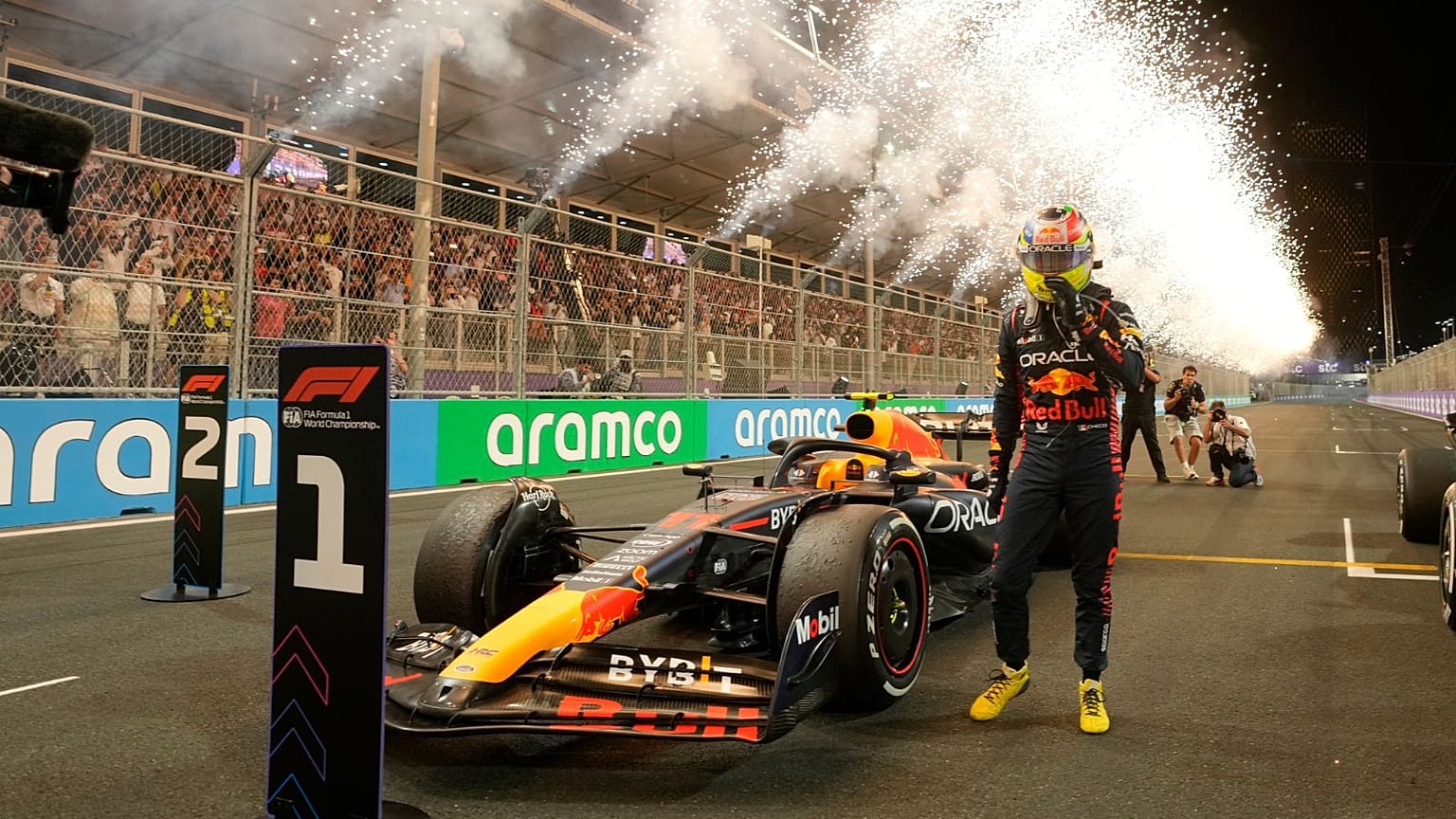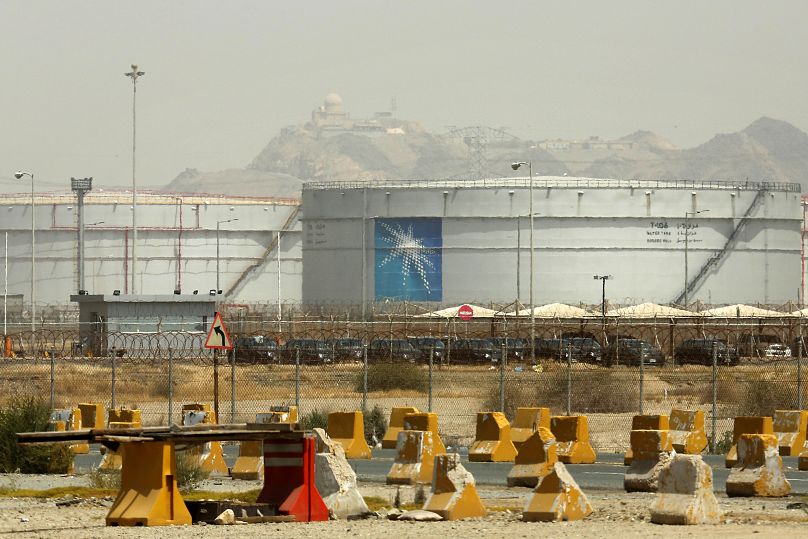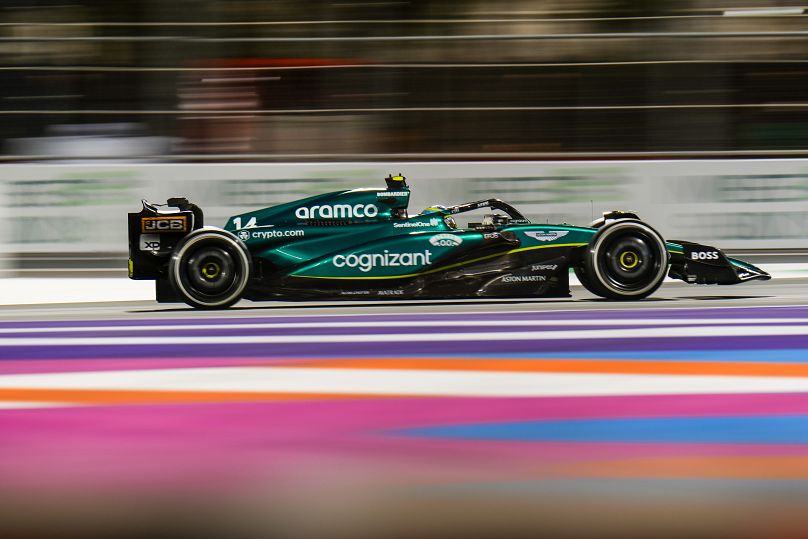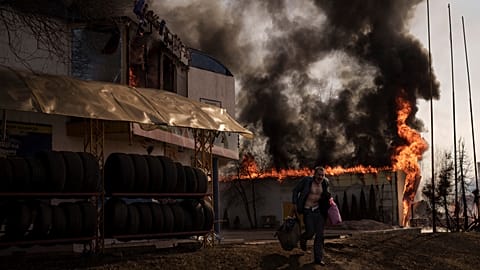The oil giant has been presenting itself as a ‘sustainable’ fuels champion despite 99.99 per cent of its production being fossil fuels.
Formula 1 sponsor Saudi Aramco has been accused of greenwashing, in new advertising complaints submitted to UK and Dutch regulators.
 ADVERTISEMENT
ADVERTISEMENT
 ADVERTISEMENT
ADVERTISEMENT
The world's biggest oil company made “misleading environmental claims” about its fuels, according to complaints submitted by UK campaign groups New Weather Institute and Fossil Free Football, and Reclame Fossielvrij in the Netherlands.
The oil company is 95 per cent owned by the Saudi Arabian state, and has an increasingly slick grip on the world of sport. Saudi Arabia's Public Investment Fund (PIF) bought UK football club Newcastle United in 2021, and Aramco is set to become FIFA’s largest corporate sponsor. It sponsored the cricket World Cup last year, with ‘Aramco Player of the Match’ awards presented under record-pushing hot, polluted skies in India.
“Saudi Aramco poses a direct threat to a liveable planet,” says Frank Huisingh of Fossil Free Football. “Big oil is deeply unpopular, so they spend hundreds of millions on PR, including associating itself with the sports we love.”
F1 has an estimated 1.56 billion fans worldwide, who the campaigners say were targeted with spurious claims about the Aramco-produced fuels used in racing cars and on our roads.
Why have Aramco and FT been accused of greenwashing?
The campaigners have complained to UK advertising watchdog ASA and the Dutch regulator over a series of Aramco adverts, including in Britain’s Financial Times (FT) newspaper.
Their complaints take aim at the oil giant’s “confusing use of terminology” and “misleading environmental claims” in promoting its ‘advanced’ and ‘low carbon’ fuels.
These fuels are not a scalable solution to decarbonising transport due to the vast amounts of energy required to produce them, say New Weather Institute, Fossil Free Football and Reclame Fossielvrij, citing experts.
The world’s leading scientific climate body, the IPCC, highlights the need for electric vehicles and does not include e-fuels or synthetic fuels among the range of solutions needed to address the world’s transport challenge.
“We have to be mindful of how false claims made by polluting companies using sport as a billboard for false green claims will undermine the legacy of our sport and its innovative capacity,” says British Rally Championship driver Nabila Tejpar.
“Spurious claims that aren’t backed up by science make sure that no one wins, and instead leave us exposed to an unpredictable future.”
Aramco’s e-fuel plant will make just 0.0004 per cent of its crude oil production
The campaigners also say the ‘sustainable’ fuel adverts obscure the fact that Aramco is overwhelmingly geared towards oil production.
A ‘first-of-its-kind’ e-fuel demonstration plant from the company is aiming to produce 35 barrels per day of what it calls low-carbon, synthetic gasoline made from renewable-based hydrogen and captured carbon dioxide.
That pales into comparison beside Aramco’s fossil fuel operation, the campaigners point out. It currently pumps out around nine million barrels of crude oil a day.
F1 has been accused of lobbying the EU for Aramco
The advertising complaints come after F1 discussed weakening Brussels’ internal combustion engines (ICE) phase-out plan with top EU officials, allegedly on behalf of its main sponsor Saudi Aramco.
“Given Formula 1 were not going to be touched by this legislation, you have to ask what their interest was in lobbying the European Commission on it,” one commentator told public interest journalism unit SourceMaterial. In 2020, F1 and Aramco signed a sponsorship deal reportedly worth around €42 million a year, plus €60 million for every race including a new Saudi Grand Prix, launched in 2021.
F1 says it simply believes in the potential of sustainable fuels for decarbonising ICE vehicles made until 2035, and has been proactive in sharing its evidence and views with policymakers.
During COP28 last year, investigations revealed Saudi Arabia’s plans to artificially increase oil production, and hook developing countries on oil and ICE vehicles.
“F1 is renowned for speed, but allowing Saudi Aramco to pull a fast one on sports fans by using their brand to spread misleading information will only put the brakes on the transition to clean energy and clean air,” says Andrew Simms, co-director of the New Weather Institute.
“Saudi Aramco repeatedly acts to keep the world locked in a fossil fuel trap raising roadblocks to climate progress. In the final lap of the fight against climate breakdown, we need a red light to stop these corporations from confusing, misleading and ultimately delaying the climate action we need to accelerate.”
Campaigners’ ad complaint follows football victory
Last year, the New Weather Institute (alongside campaign groups in four other European nations) submitted a successful complaint to the Swiss advertising regulator about FIFA’s misleading claim that the Qatar World Cup would be carbon neutral.
The Swiss Fairness Commission (SLK) said it could not judge whether FIFA's estimation of 3.6 million tonnes of equivalent carbon waste generated by the tournament was "realistic or accurate". Nor could it verify the football world governing body’s offset claims.
“It should not be claimed that sustainability goals have been achieved if there are no definitive and generally accepted methods for measuring sustainability or ensuring sustainability measures have been implemented,” the regulator concluded.
The New Weather Institute group is hoping for a similar victory with F1 this time.
“We have set a target to be Net Zero Carbon by 2030 both on and off the track,” F1 said in response to a request for comment from Euronews Green. “One action we are taking is to move to advanced sustainable fuels, that will be carbon neutral, in the Formula 1 hybrid power unit in 2026.
“We believe that the fuel could have a significant benefit for the wider automotive sector particularly by being used as a drop-in fuel in existing ICE road vehicles and could dramatically reduce global automotive emissions at a time when conventional cars still exist and are produced on a significant scale - a point we have been keen to proactively highlight.”
Saudi Aramco has been contacted for comment. As has the FT, named as the other co-defendant in the advertising complaints for its role in creating and disseminating sponsored content for Aramco.




















